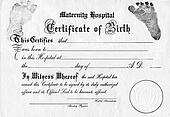"Children have always learned and created places for themselves through play."
-Donna R. Barnes
Contemporary American psychologist
"Play energizes us and enlivens us. It eases our burdens. It renews our natural sense of optimism and opens us up to new possibilities."
-Stuart Brown, MD
Contemporary American psychiatrist
Pogo balls was very essential in play when I was growing up. It provided physical exercise and it taught me balance.
The cabbage patch kid was one of my favorite toys. It allowed me to do pretend play. I was able to pretend that my cabbage patch kid was a real baby and I could talk to them, change their clothes, and pretend to feed them.
The Rubik cube was a toy that was challenging to me. It challenged my mind, I had to think logically and problem solve to match the colors.
When I was growing up my mother, sister, brothers, and teachers supported play. My mother supported play by allowing me to play with my toys and going outside to play with other children in the neighborhood. My siblings supported play by playing with me and they also bought me toys when I was younger. My teachers supported play by allowing us to have recess and going outside to jump rope, play basketball, or just running around to get a break from sitting in a classroom all day.
I believe play is different from when I was younger because there are more technological devices than when I was growing up. Play is very different in our schools than when I was growing up because there is no more play time. When I was growing up we had recess and we were allowed to go outside or in the gym to play and get a break from classwork. Chicago Public Schools no longer offer recess time for children to play. Chicago Public Schools has also taken away extracurricular activities such as band and art. When I was growing up I was in the choir, I participated on the cheerleader squad, and I also took a sewing class. I really think that Chicago should bring back recess and extracurricular activities because I believe that this is part of the cause for the rising violence in Chicago. Every day a young person has been shot or killed by gun violence. The children do not have a outlet to release their energy. Most children when they get home from school have to play the mommy or daddy role with younger siblings or fin for themselves, so they do not have time to play at home. In some homes most play consist of video games or computer games. This does not allow the child an opportunity to do physical activities. The mind is working and being challenged in video games, but the child is sitting for hours. I know after school when I was growing up I came home, did my homework, and then I was allowed to go outside to play if the weather permitted. After that it was time to come in have dinner, take a bath, and go to bed. I was exhausted and ready to go to bed because I tired myself out by running, jumping rope, or just hanging out with my friends in the neighborhood.
The role of play throughout my life thought me how to socialize, problem solve, think critically, solve conflicts, and learn. I find myself playing now as an adult and play is my time to release any built up tension or stress do to my every day life task. I sometimes play video games, computer games, or play with my child. During play time as an adult I don't worry about anything and it takes my mind off of things that I may have been stressing about. If I had a bad day at work play with my daughter relaxes me and keep my mind at ease. Even though we play video games they are more active so we are not just sitting in front of the television. We are up dancing, jumping, running, or jogging. This allows me to have some form of physical activity which is important not only in young children. Adults need to be physically active to stay healthy and fit. Play keeps your metabolism high because when I was a child growing up, childhood obesity was not an issue. My family members use to wonder where the food was going when I ate because I stayed small. I use to eat a lot but I was also physically active. I believe that this is the reason there are so many children who are overweight. The minute I became less active I started gaining weight and now it is hard to keep it off. Play is important for cognitive development and physical health.
http://www.waldenu.edu
















